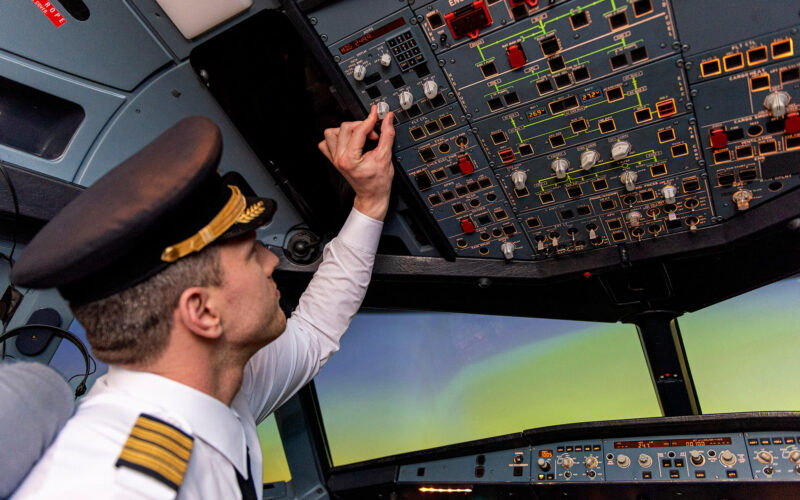With the continuous news on airlines dealing with a global pilot shortage BAA Training, one of the TOP 3 biggest independent aviation training centres in Europe and part of Avia Solutions Group, announces about the plans to expand its full flight simulators’ fleet with 6 additional units in Europe and Asia. Preliminary investments may reach 60M Euros.
With more than 100 scheduled airlines, a network of over 400 airports and 60 air navigation service providers, air transport makes a key contributor to the European economy. Europe holds 34% of the global air traffic and according to Boeing projections it will grow by 113% by 2037. Correspondingly the current fleet size of 4,900 aircraft is to reach 8,800 with the biggest increase in small-medium size airplanes. This means that by that time Europe will need 146,000 new pilots.

“Working closely with our partner airlines we witness the growing need for the training capabilities. At the moment, we can see that the current training capacity at airlines is filled with existing pilot training, creating a lack of full flight simulators to prepare new pilots. It is not a secret that there is a high entry barrier for newcomers training providers – not only it requires specific know-how, but also the capital expenditures. Being a part of Avia Solutions Group, which earned €420 million in consolidated revenue in 2018, we are strong to fulfill the market needs,” comments Egle Vaitkeviciute, CEO at BAA Training.
According to the strategic expansion plan, BAA Training headquarters is bound to expand its training capabilities with an already fourth training facility and two additional full flight simulators in 2019: Airbus A320ceo and Boeing737NG. In addition to that BAA Training is actively looking into possibilities to expand its full flight simulator fleet in Europe starting with Rome, Italy, where two full flight simulators – Airbus A320neo and Boeing 737NG – are planned to be added in 2019-2020.
“There are about 100 airlines flying to Rome making it an air travel hub. Operating two full flight simulators of most popular aircraft types would allow us to create a synergy with airlines, turning Rome not only into a destination location, but also a convenient pilot training location, this way helping our partners to cut back on time and money expenses,” comments Egle Vaitkeviciute.

In addition to that over the next 20 years, the existing fleet in South East Asia and China will nearly triple, from 7,690 airplanes in 2017 to outstanding 12,970 airplanes in 2037. The need for new aircraft will be driven mostly by the fats growing low-cost carriers within the region. Looking at South East Asia alone, the number of aircraft will grow from 1,480 to 4,340 aircraft by 2037, from which 77% will be single-aisle airplanes, mainly Airbus A320 and Boeing 737 family aircraft.
Continuing the expansion to Asia, the last year established BAA Training Vietnam in Ho Chi Minh city is about to open a brand new training centre. BAA Training Vietnam will start operations with the first Airbus A320 full flight simulator at the beginning of the autumn and will add the second Airbus A320neo later in 2019, in addition to the soon-to-be signed Joint Venture agreement with Henan Civil Aviation Development and Investment Company (HNCA) local governmental partner in China marking the beginning of BAA Training China. Operated by the BAA Training franchise license the training centre in Henan province is set to assemble 6 full flight simulators in total starting with Airbus A320 and Boeing 737NG by the second quarter of 2020.

